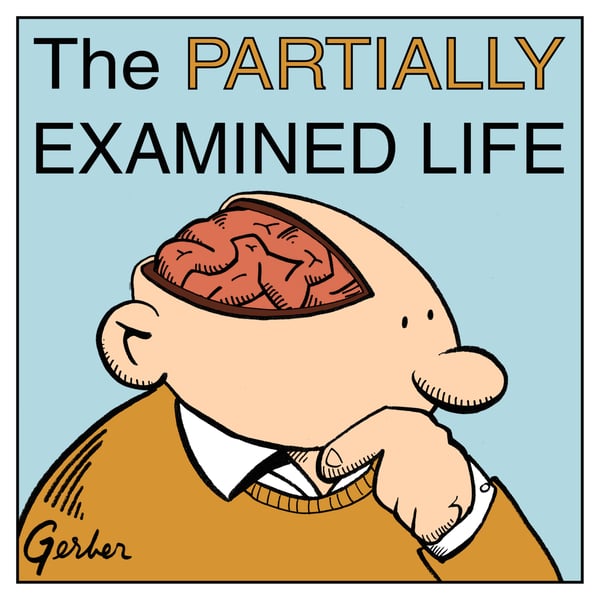Ep. 237: Walter Benjamin Analyzes Violence (Part Two)
The Partially Examined Life Philosophy Podcast
Mark Linsenmayer
4.6 • 2.3K Ratings
🗓️ 9 March 2020
⏱️ 45 minutes
🧾️ Download transcript
Summary
Continuing on Benjamin's "Critique of Violence" (1921).
Mark, Wes, and Seth keep trying to figure out this difficult essay. Is Benjamin really advocating a workers' revolution to end the state, or just reflecting on a hypothetical to explore the limits of the concept of violence?
According to Judith Butler's interpretation of the essay, the takeaway is the alternative to motivation through force, i.e. speech, which Benjamin (in other essays) gives some religious significance, but the way he actually concludes the essay is in a discussion of "divine violence" as somehow transcending means-end analysis and the corruption inherent in violence.
Begin with part one or get the full, ad-free Citizen Edition. Please support PEL!
End song: "Jericho" from hackedepiciotto, as interviewed on Nakedly Examined Music #116.
Transcript
Click on a timestamp to play from that location
| 0:00.0 | The partial exam in life depends on your support. |
| 0:02.6 | To find out how to do that and ways that are cheap or even free, |
| 0:05.6 | go to partiallyxamonlife.com slash support. |
| 0:16.3 | You're listening to the partially examined life episode 237 part two. |
| 0:20.4 | We've been talking about Walter Benjamines essay, the critique of violence. |
| 0:23.7 | So I think we've kind of reached a splitting off point here. |
| 0:26.4 | We've established what Benjamines' view of |
| 0:30.0 | really the state is always founded on violence. |
| 0:32.8 | It's certainly on potential violence, even if it's not explicitly abusing its subjects, |
| 0:38.7 | it sets limits. |
| 0:40.0 | And if the subjects move out of those, then they will be punished. |
| 0:43.0 | And they have to be in order for the state to maintain its monopoly on power. |
| 0:47.8 | This is just something essential to the state itself. |
| 0:51.0 | So in illustrating this, he provides a contrast to, well, what kind of negotiations |
| 0:58.5 | don't require violence, speech. |
| 1:01.2 | And so this is the thing that Judith Butler runs with and says, |
| 1:03.9 | this is actually the solution that the essay provides. |
| 1:06.7 | This provides a way of talking about non-violence, |
| 1:10.0 | the communicative act involved in speech. |
| 1:12.9 | And then there's the way that he actually concludes the story, |
| 1:16.6 | which is by talking about this pure form of violence, |
| 1:20.0 | they call it divine violence. |
... |
Please login to see the full transcript.
Disclaimer: The podcast and artwork embedded on this page are from Mark Linsenmayer, and are the property of its owner and not affiliated with or endorsed by Tapesearch.
Generated transcripts are the property of Mark Linsenmayer and are distributed freely under the Fair Use doctrine. Transcripts generated by Tapesearch are not guaranteed to be accurate.
Copyright © Tapesearch 2025.

